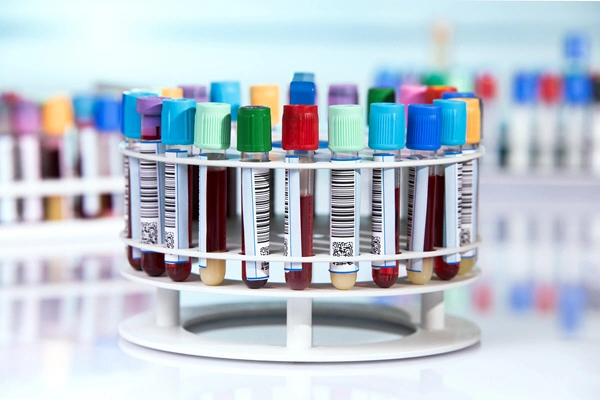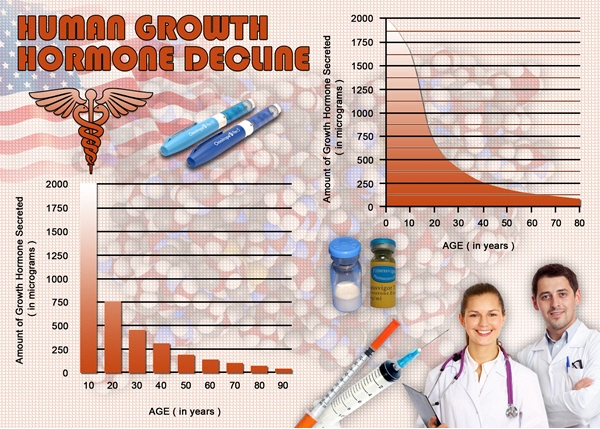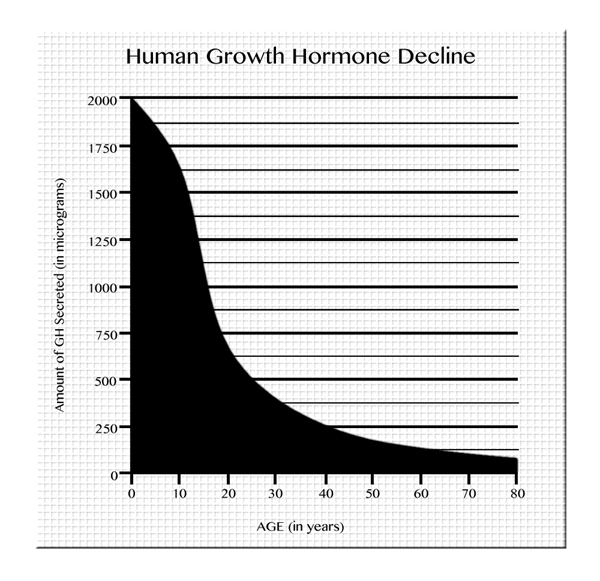Introduction
Sexual dysfunction represents a significant health concern among American males, impacting quality of life and interpersonal relationships. Recent advances in genomics have opened new avenues for understanding the biological underpinnings of these conditions. This article delves into a groundbreaking genome-wide association study (GWAS) that explores the genetic factors contributing to sexual dysfunction in American males, offering new perspectives on potential diagnostic and therapeutic strategies.
Understanding Sexual Dysfunction
Sexual dysfunction encompasses a range of conditions, including erectile dysfunction, premature ejaculation, and decreased libido. While psychological and lifestyle factors are well-known contributors, the role of genetics in these conditions has been less explored until recently. The GWAS approach provides a powerful tool to identify genetic variants associated with complex traits, including sexual health.
Methodology of the Study
The study involved a large cohort of American males, ranging in age from 20 to 70 years, who were assessed for various forms of sexual dysfunction. Participants underwent comprehensive medical evaluations and provided DNA samples for genotyping. The GWAS was conducted using high-density SNP arrays, followed by rigorous statistical analysis to identify significant genetic associations.
Key Findings
The study identified several genetic loci significantly associated with sexual dysfunction. Notably, variants in genes related to neurotransmitter pathways, such as those involved in serotonin and dopamine signaling, were linked to conditions like premature ejaculation and decreased libido. Additionally, genetic variants associated with vascular health were found to correlate strongly with erectile dysfunction, underscoring the importance of cardiovascular health in sexual function.
Implications for Diagnosis and Treatment
These findings have profound implications for both the diagnosis and treatment of sexual dysfunction. By identifying specific genetic markers, clinicians can potentially develop more personalized approaches to managing these conditions. For instance, patients with genetic predispositions to neurotransmitter imbalances might benefit from targeted pharmacological interventions, while those with vascular-related genetic variants may require more aggressive cardiovascular management.
Future Directions
The study opens several avenues for future research. One promising direction is the development of genetic screening tools that can identify individuals at high risk for sexual dysfunction, allowing for early intervention. Additionally, further studies could explore gene-environment interactions, examining how lifestyle factors such as diet, exercise, and stress influence the genetic predisposition to sexual dysfunction.
Challenges and Considerations
Despite the promising findings, there are challenges to consider. The complexity of sexual dysfunction, influenced by a myriad of genetic and environmental factors, means that a single genetic marker is unlikely to provide a complete picture. Moreover, the ethical implications of genetic testing for sexual health must be carefully navigated, ensuring patient privacy and informed consent.
Conclusion
The genome-wide association study on sexual dysfunction in American males represents a significant step forward in understanding the genetic basis of these conditions. By identifying key genetic markers, the study paves the way for more personalized and effective treatments. As research progresses, the integration of genetic insights with traditional clinical approaches holds the promise of improving the sexual health and overall well-being of American males.
In summary, this study not only enhances our understanding of the genetic factors contributing to sexual dysfunction but also underscores the importance of a multidisciplinary approach in addressing this complex health issue. As we move forward, continued research and collaboration will be crucial in translating these genetic insights into tangible benefits for patients.

- Exploring Vasopressin Receptor Antagonists: A Breakthrough in Treating Sexual Dysfunction in Eugonadal Men [Last Updated On: December 16th, 2025] [Originally Added On: February 17th, 2025]
- Unlocking Desire: The Role of Kisspeptin in Treating Hypothalamic Hypogonadism and Sexual Dysfunction in American Men [Last Updated On: February 22nd, 2025] [Originally Added On: February 22nd, 2025]
- Optimizing Cortisol-Testosterone Ratio for Effective Hormonal Therapy in Erectile Dysfunction Management [Last Updated On: March 7th, 2025] [Originally Added On: March 7th, 2025]
- Neurosteroid Modulation in Treating Libido Disorders: Clinical Trials and Treatment Implications [Last Updated On: March 8th, 2025] [Originally Added On: March 8th, 2025]
- Managing Hormonal Imbalance in Men: Aromatase Inhibitors for Improved Sexual Health [Last Updated On: March 9th, 2025] [Originally Added On: March 9th, 2025]
- Somatostatin Analogues' Impact on Male Sexual Health: Insights and Management Strategies [Last Updated On: March 11th, 2025] [Originally Added On: March 11th, 2025]
- Exploring the Efficacy of DHEA Supplementation in Enhancing Sexual Function in Aging American Males: A Clinical Insight [Last Updated On: March 12th, 2025] [Originally Added On: March 12th, 2025]
- Exploring the Dual Impact of Melatonin on Circadian Rhythms and Sexual Health: A Guide for American Males [Last Updated On: March 13th, 2025] [Originally Added On: March 13th, 2025]
- Unveiling the Impact of hCG Monotherapy and Testosterone Replacement on Erectile Function in Men with Secondary Hypogonadism [Last Updated On: March 15th, 2025] [Originally Added On: March 15th, 2025]
- Pharmacokinetics of Testosterone Formulations and Their Impact on Sexual Function in American Males [Last Updated On: March 17th, 2025] [Originally Added On: March 17th, 2025]
- SARMs: A Promising Solution for Sexual Dysfunction in Aging American Males [Last Updated On: March 18th, 2025] [Originally Added On: March 18th, 2025]
- Vitamin D, Testosterone, and ED: Insights for American Males' Sexual Health [Last Updated On: March 19th, 2025] [Originally Added On: March 19th, 2025]
- Testosterone Therapy Enhances Erectile Function via Endothelial and Nitric Oxide Pathways [Last Updated On: March 19th, 2025] [Originally Added On: March 19th, 2025]
- Bioavailable vs. Total Testosterone: Predicting Sexual Function in Men on HRT [Last Updated On: March 19th, 2025] [Originally Added On: March 19th, 2025]
- GnRH Modulation Therapy: A Promising Treatment for HSDD in American Men [Last Updated On: March 19th, 2025] [Originally Added On: March 19th, 2025]
- Leptin Resistance and Sexual Dysfunction in Men: Hormone Optimization Insights [Last Updated On: March 20th, 2025] [Originally Added On: March 20th, 2025]
- Zinc Supplementation Enhances Testosterone Therapy for Male Sexual Dysfunction [Last Updated On: March 20th, 2025] [Originally Added On: March 20th, 2025]
- Age-Related Kiss1 Decline Impacts Sexual Dysfunction Treatment in American Males [Last Updated On: March 21st, 2025] [Originally Added On: March 21st, 2025]
- Ghrelin's Role in Appetite and Sexual Function: Hormonal Interventions for American Males [Last Updated On: March 21st, 2025] [Originally Added On: March 21st, 2025]
- Phlebotomy and Hormone Therapy Enhance Sexual Function in Males with Iron Overload and Hypogonadism [Last Updated On: March 21st, 2025] [Originally Added On: March 21st, 2025]
- Genetic Polymorphisms in Androgen Receptors Impact Hormone Therapy for Male Sexual Dysfunction [Last Updated On: March 22nd, 2025] [Originally Added On: March 22nd, 2025]
- Selenium's Impact on Hormonal Health and Sexual Function in American Men [Last Updated On: March 23rd, 2025] [Originally Added On: March 23rd, 2025]
- Copper-to-Zinc Ratio Predicts Hormone Therapy Success in Male Sexual Dysfunction [Last Updated On: March 23rd, 2025] [Originally Added On: March 23rd, 2025]
- Cryptorchidism: Impacts on Sexual Health and Hormone Therapy Management in American Males [Last Updated On: March 23rd, 2025] [Originally Added On: March 23rd, 2025]
- Phlebotomy and Testosterone Therapy Enhance Sexual Function in Hemochromatosis-Induced Hypogonadism [Last Updated On: March 23rd, 2025] [Originally Added On: March 23rd, 2025]
- Mumps Orchitis-Induced Testicular Atrophy: Impact on Sexual Function and HRT Efficacy in American Males [Last Updated On: March 23rd, 2025] [Originally Added On: March 23rd, 2025]
- Boron Supplementation Enhances Testosterone and Sexual Function in Aging American Males [Last Updated On: March 24th, 2025] [Originally Added On: March 24th, 2025]
- Testicular Torsion: Impact on Sexual Function and Hormone Optimization Therapy [Last Updated On: March 24th, 2025] [Originally Added On: March 24th, 2025]
- Hormone Therapy Responses in Testicular Failure vs. Secondary Hypogonadism: Optimizing Sexual Dysfunction Treatment [Last Updated On: March 24th, 2025] [Originally Added On: March 24th, 2025]
- Chromium Supplementation Enhances Sexual Function in Men on Testosterone Therapy [Last Updated On: March 24th, 2025] [Originally Added On: March 24th, 2025]
- Managing Sexual Dysfunction in Klinefelter Syndrome: Role of Hormone Therapy and Beyond [Last Updated On: March 24th, 2025] [Originally Added On: March 24th, 2025]
- Calcium-to-Magnesium Ratio's Impact on HRT Efficacy in American Men [Last Updated On: March 24th, 2025] [Originally Added On: March 24th, 2025]
- Magnesium Levels Predict Testosterone Therapy Success for Erectile Dysfunction in American Males [Last Updated On: March 24th, 2025] [Originally Added On: March 24th, 2025]
- Delayed Puberty in American Males: Impact on Sexual Function and HRT Timing [Last Updated On: March 24th, 2025] [Originally Added On: March 24th, 2025]
- Traumatic Testicular Injury: HRT Benefits and Holistic Recovery for American Males [Last Updated On: March 25th, 2025] [Originally Added On: March 25th, 2025]
- Iodine Deficiency, Thyroid Health, and Male Sexual Dysfunction: Exploring Multimodal HRT [Last Updated On: March 25th, 2025] [Originally Added On: March 25th, 2025]
- Smoking's Impact on Sexual Health: Mechanisms and Mitigation Strategies for American Males [Last Updated On: March 25th, 2025] [Originally Added On: March 25th, 2025]
- Hormone Replacement Therapy for Sexual Dysfunction in American Males with Post-Orchitis Atrophy [Last Updated On: March 25th, 2025] [Originally Added On: March 25th, 2025]
- Varicocelectomy and Hormone Therapy: Enhancing Sexual Function in American Males [Last Updated On: March 25th, 2025] [Originally Added On: March 25th, 2025]
- Pituitary Microadenomas: Impact on Sexual Function and Hormone Therapy Outcomes in American Males [Last Updated On: March 26th, 2025] [Originally Added On: March 26th, 2025]
- CPAP and Hormone Therapy Enhance Sexual Health in American Males with OSA [Last Updated On: March 26th, 2025] [Originally Added On: March 26th, 2025]
- Glucocorticoid vs. Testosterone Therapy for Sexual Dysfunction in American Men with Adrenal Insufficiency [Last Updated On: March 26th, 2025] [Originally Added On: March 26th, 2025]
- Marijuana Use and Male Sexual Health: Impacts and HRT Solutions [Last Updated On: March 26th, 2025] [Originally Added On: March 26th, 2025]
- Radiation-Induced Testicular Damage: Managing Sexual Health with Hormone Therapy [Last Updated On: March 26th, 2025] [Originally Added On: March 26th, 2025]
- Subclinical Hypothyroidism's Impact on Testosterone and Sexual Dysfunction in American Men [Last Updated On: March 26th, 2025] [Originally Added On: March 26th, 2025]
- IBD's Impact on Testosterone and Sexual Function in American Males: Management Strategies [Last Updated On: March 26th, 2025] [Originally Added On: March 26th, 2025]
- PADAM's Impact on Sexual Health and Long-Term HRT Outcomes [Last Updated On: March 27th, 2025] [Originally Added On: March 27th, 2025]
- Comparing Hormone Therapies for Opioid-Induced Endocrinopathy in American Males [Last Updated On: March 27th, 2025] [Originally Added On: March 27th, 2025]
- Abstinence and Hormone Therapy: Restoring Sexual Health in Alcohol-Induced Testicular Dysfunction [Last Updated On: March 27th, 2025] [Originally Added On: March 27th, 2025]
- Hormone Replacement Strategies for Chemotherapy-Induced Hypogonadism in American Males [Last Updated On: March 27th, 2025] [Originally Added On: March 27th, 2025]
- Managing Sexual Dysfunction in Type 2 Diabetes: Metabolic Control and Hormone Optimization [Last Updated On: March 27th, 2025] [Originally Added On: March 27th, 2025]
- Parkinson's Disease and Male Sexual Health: Dopamine and Hormone Therapies Explored [Last Updated On: March 28th, 2025] [Originally Added On: March 28th, 2025]
- Weight Loss vs. HRT: Managing Obesity-Related Hypogonadism in American Males [Last Updated On: March 28th, 2025] [Originally Added On: March 28th, 2025]
- Anabolic Steroid-Induced Hypogonadism: Impact, Recovery, and Sexual Health Restoration [Last Updated On: March 28th, 2025] [Originally Added On: March 28th, 2025]
- Cushing's Syndrome Recovery: Cortisol Normalization and Testosterone Therapy in American Males [Last Updated On: March 28th, 2025] [Originally Added On: March 28th, 2025]
- Chronic Kidney Disease and Sexual Dysfunction: Managing with Hormone Replacement Therapy [Last Updated On: March 29th, 2025] [Originally Added On: March 29th, 2025]
- Neurohormonal Strategies for Treating Sexual Dysfunction in Men with Multiple Sclerosis [Last Updated On: March 29th, 2025] [Originally Added On: March 29th, 2025]
- NAFLD's Impact on Hormones and Sexual Health in American Males: A Multimodal Approach [Last Updated On: March 29th, 2025] [Originally Added On: March 29th, 2025]
- Dopamine Agonists vs. Testosterone for Hyperprolactinemia-Induced Sexual Dysfunction in Men [Last Updated On: March 29th, 2025] [Originally Added On: March 29th, 2025]
- Rheumatoid Arthritis in American Males: Impacts on Sexual Health and Dual Therapy Benefits [Last Updated On: March 30th, 2025] [Originally Added On: March 30th, 2025]
- Hormone Therapy and Neuromodulation: Enhancing Sexual Function in SCI Males [Last Updated On: April 2nd, 2025] [Originally Added On: April 2nd, 2025]
- HRT Enhances Sexual Function in American Men on SSRIs: Clinical Outcomes and Implications [Last Updated On: April 3rd, 2025] [Originally Added On: April 3rd, 2025]
- Alzheimer's Impact on Sexual Function: Exploring Hormone Therapy Benefits and Risks [Last Updated On: April 3rd, 2025] [Originally Added On: April 3rd, 2025]
- Neuroendocrine Assessment and Hormone Therapy for Post-Stroke Sexual Dysfunction in Men [Last Updated On: April 4th, 2025] [Originally Added On: April 4th, 2025]
- Managing Sexual Dysfunction in Prostate Cancer Treatment with GnRH Agonists [Last Updated On: April 5th, 2025] [Originally Added On: April 5th, 2025]
- Statins, Hormonal Changes, and Sexual Dysfunction: Testosterone Therapy's Role in American Men [Last Updated On: April 5th, 2025] [Originally Added On: April 5th, 2025]
- Antipsychotic-Induced Hyperprolactinemia: Effects and Management in American Males [Last Updated On: April 6th, 2025] [Originally Added On: April 6th, 2025]
- Exploring Hormone Modulation for Recovery from 5α-Reductase Inhibitor Sexual Dysfunction in American Males [Last Updated On: April 9th, 2025] [Originally Added On: April 9th, 2025]
- Clomiphene vs. TRT: Impacts on Sexual Function and Fertility in Young Men [Last Updated On: April 10th, 2025] [Originally Added On: April 10th, 2025]
- Androgen Deprivation Therapy: Enhancing Sexual Function with Partial Hormone Replacement [Last Updated On: April 10th, 2025] [Originally Added On: April 10th, 2025]
- Beta-Blockers' Impact on Sexual Function and Hormone Therapy Benefits in American Males [Last Updated On: April 10th, 2025] [Originally Added On: April 10th, 2025]
- Anastrozole Enhances TRT: Managing Estradiol for Better Sexual Health in American Men [Last Updated On: April 11th, 2025] [Originally Added On: April 11th, 2025]
- Aromatase Inhibitors in Testosterone Therapy: Enhancing Sexual Function in American Males [Last Updated On: April 12th, 2025] [Originally Added On: April 12th, 2025]
- Radiotherapy-Induced Sexual Dysfunction in American Males: Hormone Therapy and Management Strategies [Last Updated On: April 12th, 2025] [Originally Added On: April 12th, 2025]
- hCG Monotherapy Enhances Sexual Function in American Males on TRT [Last Updated On: April 12th, 2025] [Originally Added On: April 12th, 2025]
- Post-Prostatectomy Sexual Dysfunction: HRT Timing, Types, and Holistic Management Strategies [Last Updated On: April 13th, 2025] [Originally Added On: April 13th, 2025]
- Tamoxifen's Role in Managing Gynecomastia and Sexual Dysfunction in TRT Patients [Last Updated On: April 14th, 2025] [Originally Added On: April 14th, 2025]
- Hormone Therapy and Optimization: A New Approach to Treating Erectile Dysfunction [Last Updated On: April 16th, 2025] [Originally Added On: April 16th, 2025]
- Comparing Enclomiphene and Testosterone Gel for Sexual Function in Secondary Hypogonadism [Last Updated On: April 17th, 2025] [Originally Added On: April 17th, 2025]
- PRP Injections for ED: Efficacy Varies with Testosterone Levels in American Males [Last Updated On: April 17th, 2025] [Originally Added On: April 17th, 2025]



List of USA state clinics - click a flag below for blood testing clinics.
Word Count: 541


















































